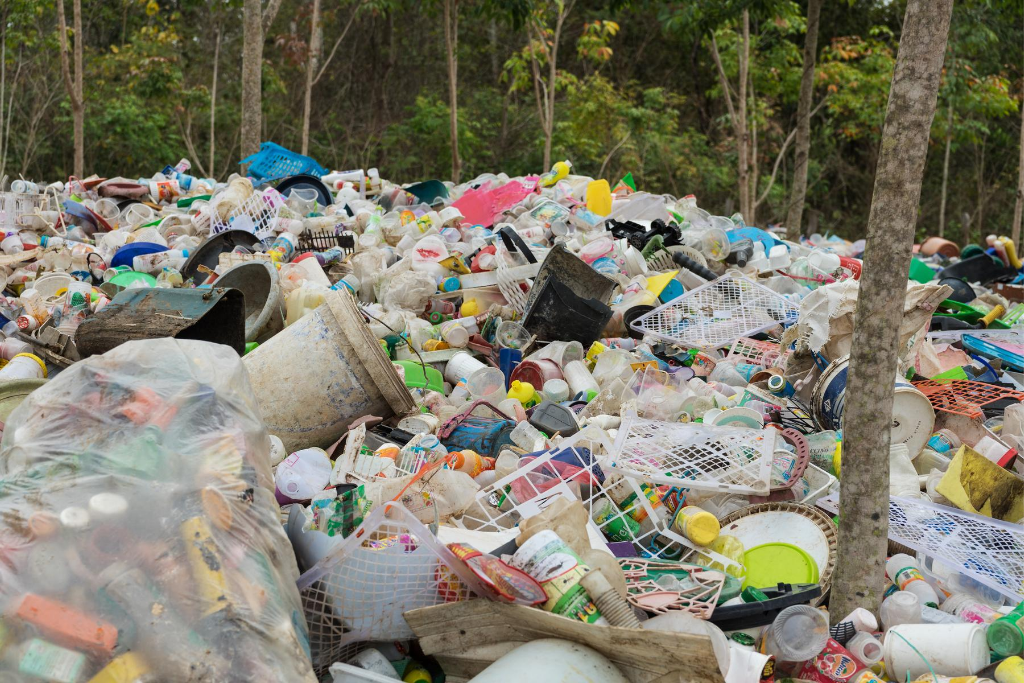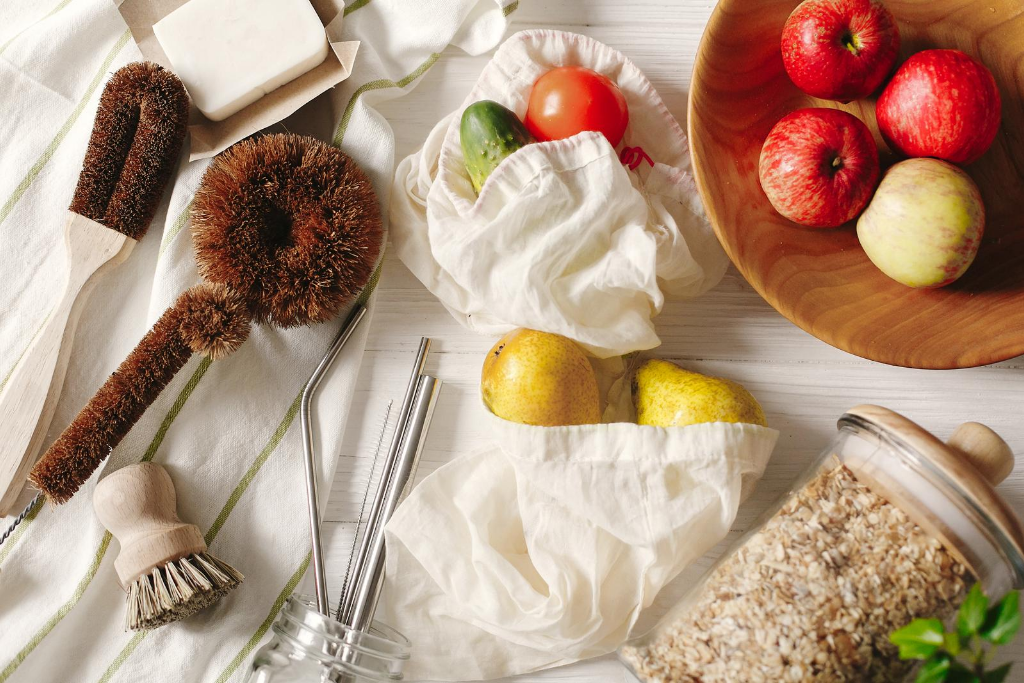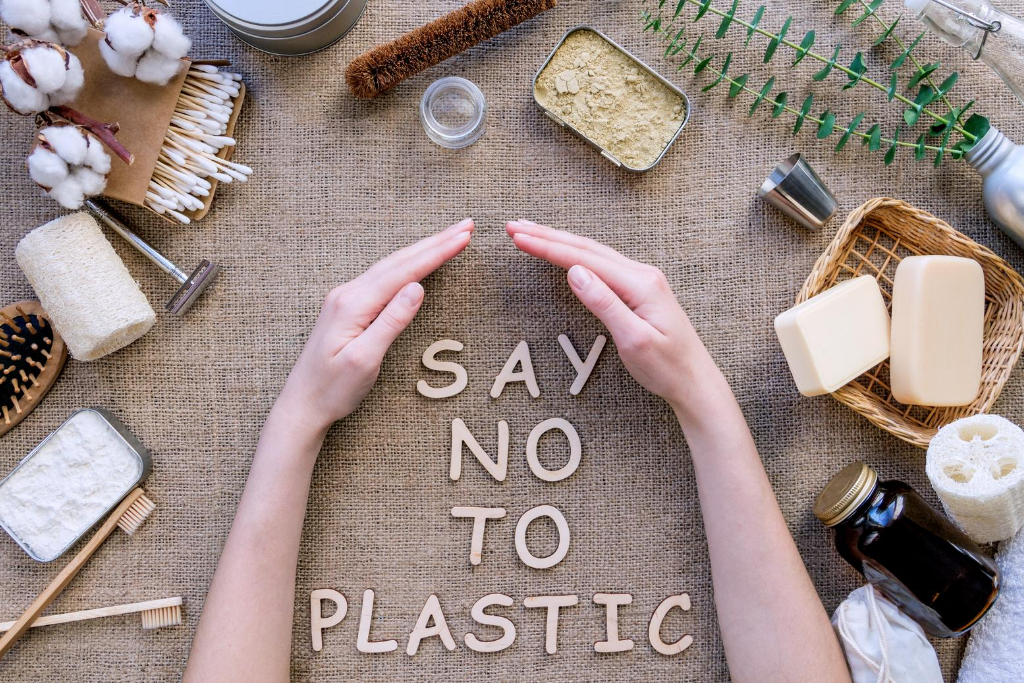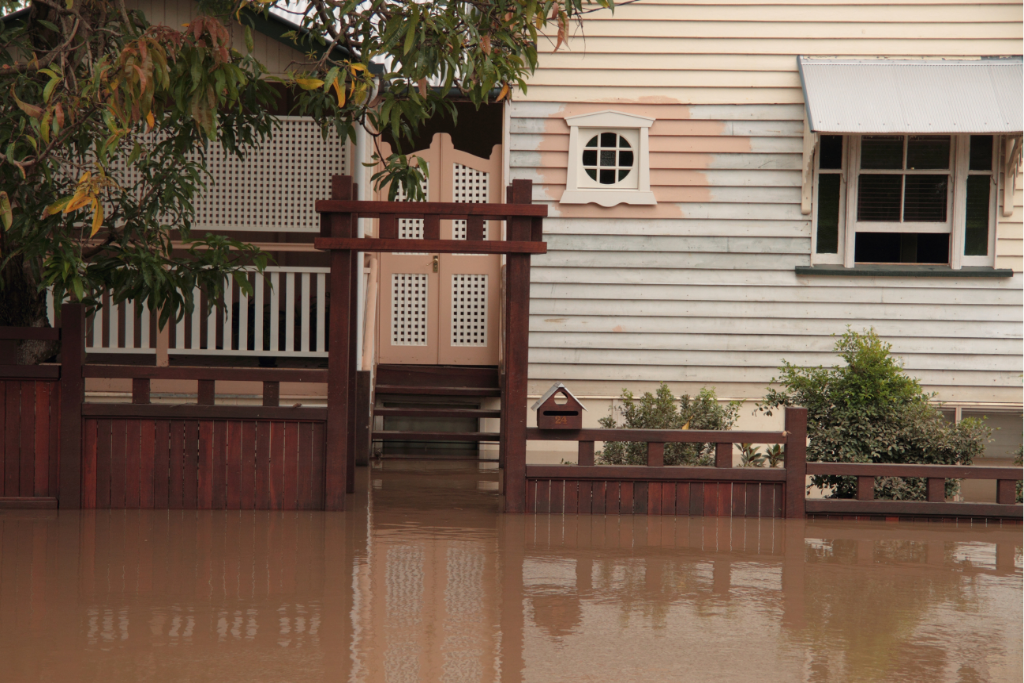How to reduce plastic waste in your home
Have you ever considered how much plastic waste your home contributes to landfill?
Bin liners, plastic water bottles, cotton buds, toothbrushes, fruit and vegetable bags, bandaids, coffee cups – the list is endless.
>> READ MORE: VEGE PATCH GUIDE FOR RENTALS
But we have a choice and we can make choices to help reduce plastic waste in our homes and therefore, in landfill, and make our environment a healthier place.
Take local business Healthy, Clean and Green for example which aims to help households make small and affordable changes that have big impacts on home, health and the environment.
We asked local Healthy, Clean and Green owner Wendy Steindl for her expert advice on how to reduce plastic waste in your home.

-
When it comes to reducing plastic waste in the home, where is the first or easiest place to start?
“The absolute first place to start is in your head. You absolutely must make a decision to reduce plastic waste.
“Then, the first place to start for the biggest impact would be in the food department. Start shopping package free as much as possible. Take your own containers and go to the local bulk food store which in Mackay is Soul Food Market. Invest in or make yourself some produce bags and never use plastic in the fruit and veg section again. If you are committed to your decision realise that sometimes you might have to choose something else or go without. There’s one type of cucumber that I absolutely love but haven’t eaten in about three years because for some reason it is always wrapped in plastic. I just choose a different type of cucumber now… the unwrapped one.
“The easiest place to start reducing plastic waste is in the bathroom. So many simple swaps here that will make a big difference. The reason I say this is the easiest is because you can plan for this when you have time. You can either shop online (of course I would recommend shopping locally and using Healthy Clean and Green) and have the products delivered to your door (free with HC&G and often the next day or two) which is super convenient.
“You can also prepare for it. When you open your last tube of toothpaste order the better choice plastic-free option there and then so when you do run out it is easy to just get your better choice option out and start using it which makes it more doable. If you run out of soap and you haven’t already purchased a plastic-free option, most likely you aren’t going to take the time then to find one. You may be in a rush to go somewhere and need to shower or whatever so you are just going to rush to the supermarket and resort to the usual plastic option because at that particular time it is the easiest thing to do. Same with toilet paper – when you need it you need it – so prepare for the change.”
2. If people don’t have a lot of time or money, what is one or two things they could do to make a major impact on reducing plastic waste?
“Again, what is really needed is the decision to reduce plastic waste and a little bit of planning. For non-food items, shop online preferably from a local store. You can do this in your pj’s while you’re watching TV at 10pm at night if you want. It takes five minutes.
“For food items, it might just mean the slightest of adjustments to things. A perfect example of this is that there is a butcher right next door to the supermarket where I live. It actually takes me less time to walk into the butcher and have them put my meat into my own containers plastic-free than it does to go into the supermarket, walk down to the meat section, walk back to the checkout, line up and pay.”
>> READ MORE: HOW TO RENOVATE ON A BUDGET
3. What is something people often overlook when it comes to reducing plastic waste?
“So much! I’ve been running my business for about three and a half years now and when I’m chatting with people the thing I’m hearing all the time is, ‘Oh… I didn’t know there was a plastic-free option for that!’. Everything from toothpaste in the bathroom, scourers and dishcloths in the kitchen to highlighters in the office.
“Probably the other thing, more so than overlooking would be misconceptions. So many people are proud to tell me things like, ‘it’s ok that this has packaging because I’m really good and take all my soft plastics to the recycle bin at the supermarket.’
“Recycling is a whole other subject that I could talk about and it really gets me on my soapbox. Let’s just say recycling isn’t all its marketed to be and definitely not the answer to our plastic waste problem. You cannot guarantee that your plastic packaging is actually getting recycled.
“Or, ‘I still use plastic bin liners (you can insert a dozen other products in here easily) but it’s ok because I buy the biodegradable ones.’ This literally makes me want to scream.
“So much of that marketing is pure greenwashing (greenwashing is where a company deliberately misleads people into thinking a product is better than it actually is). Technically speaking, everything is biodegradable: given enough time, all matter will break up into its component parts.
“However, the timeline for biodegradation varies widely. For natural, unprocessed items like fruits and vegetables, leaves, paper, and cotton fibres this process can take as little as a week to a few months. Other man-made products can take so long to degrade that for all practical purposes they are considered non-biodegradable. For example, aluminium cans take several hundred years to decompose, while it’s estimated that plastics will take anywhere from 1000 to 5000 years to decompose.
“It’s also good to keep in mind that even the most easily biodegradable items take a very long time to decompose in a landfill, where they are deprived of the oxygen, water, and microorganisms necessary for biodegradation. Even lawn clippings and table scraps that end up in a landfill won’t be breaking down anytime soon instead they will sit there and produce methane gasses.
“So you might think you are doing the right thing by purchasing the product labelled ‘biodegradable’ at the supermarket, but the way you dispose of it what really matters. That biodegradable plastic bin liner will not biodegrade in landfill.”
>> READ MORE: HOW TO REMOVE NUTGRASS
4. If there was one piece of advice you could give homes looking to reduce their waste, what would it be?
“From a save the planet point of view, I think everyone needs to jump onboard and overhaul their houses completely straight away but my advice would be to first just make a start.
“Choose one item in your kitchen, bathroom, laundry and office and make the switch. Once that particular change becomes second nature choose the next item from each category and change that too. If you do get all gun-ho and try to change everything at once it can seem hard and become overwhelming and then the changes don’t stick. By choosing a couple of things at a time it doesn’t feel overwhelming, hard, time-consuming or expensive and tends to become your new norm quicker.
“And, not necessarily plastic reducing but a something I recommend to everyone is to start a home compost and or worm farm because it will reduce your landfill waste dramatically.”
Visit Healthy, Clean and Green website for more information here.





